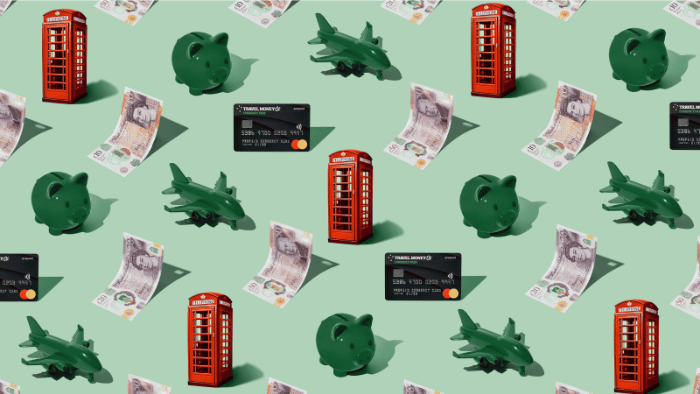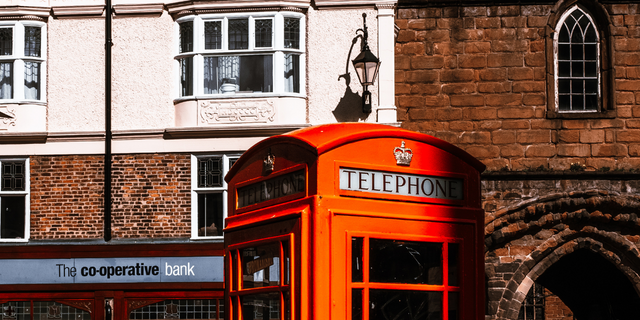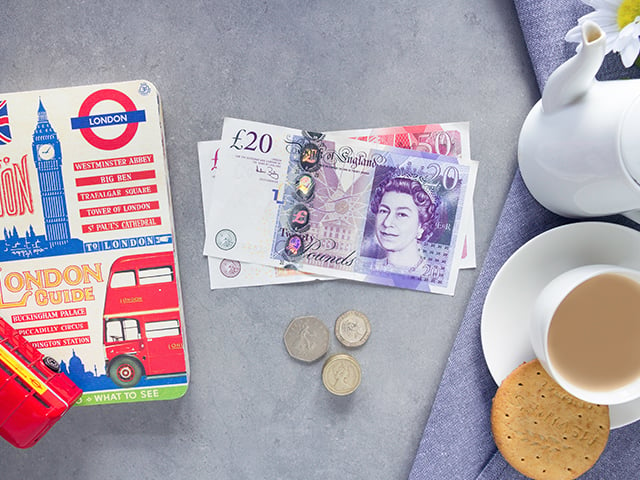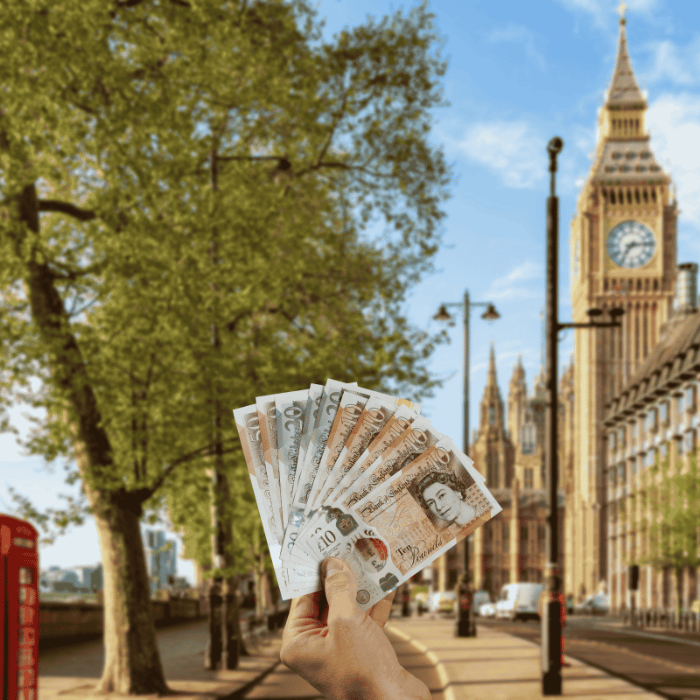Convert AUD to GBP Exchange Rate
Convert Currency
*Online rates not available in store.
Best Place to Buy British Pounds in Australia
Planning a trip to London, exploring the Scottish Highlands, or wandering through charming English villages? You'll need British Pounds in your wallet. Travel Money Oz makes it easy — order GBP online or visit one of our 90+ stores across Australia. Thanks to our Price Beat Guarantee, you'll always get a competitive rate when exchanging your Australian Dollars to Pounds Sterling. Whether you call it GBP, British Pounds, or Sterling, we've got your UK currency needs covered.
Live AUD to GBP Exchange Rate
British Pound exchange rates fluctuate constantly with market movements, so it's wise to check before converting your Australian Dollars. At Travel Money Oz, our real-time AUD to GBP rates mean no guesswork — just the latest Australian Dollar to British Pound exchange rate without surprises.
Where to Buy British Pounds Near Me
Looking for a currency exchange near you for British Pounds? Travel Money Oz has over 90+ locations across Australia, making it convenient to exchange AUD to Pounds before your UK adventure. Whether you're searching for "UK Pound exchange near me" or a trusted place to convert Australian Dollars to Sterling, we've got you covered nationwide.
With our In Stock Promise, we're guaranteed to always have British Pounds available in-store every day. On the rare occasion we don't? You'll receive $10 AUD off when you make a full deposit. Need your Pounds urgently? Take advantage of our same-day service, with competitive AUD to GBP exchange rates and no hidden fees.
GBP vs Pound Sterling explained: same currency, different terms
How to Get the Best AUD to GBP Exchange Rate
Whether you're heading to bustling London, the historic streets of Edinburgh, or the picturesque Lake District, maximizing your Australian Dollars starts with securing a favourable AUD to GBP exchange rate. At Travel Money Oz, we make this easy — offering competitive rates when converting Australian Dollars to Pounds Sterling, with no hidden fees, and over 90 locations nationwide to get your British currency sorted quickly.

Lock In More Pounds with Our Price Beat Guarantee
Found a better published cash AUD to British Pound rate in Australia? Show it to us, and we'll beat it — that's our Price Beat Guarantee. Available on in-store cash purchases, it's the easiest way to maximize your Pounds Sterling before you fly. Whether you're exploring London's markets or dining in cozy UK pubs, more GBP in your wallet means better value throughout your British adventure.
*Price Beat Guarantee applies to in-store GBP cash purchases only. Terms and conditions apply.
Card rate
Loading...
Code
GBP
Symbol
£
Coins
Pence & pounds - 1p, 2p, 5p, 10p, 20p, 50p, £1, £2
Banknotes
Pounds - £5, £10, £20, £50, £100
Order British Pounds Online for Home Delivery

Skip the last-minute stress and sort your AUD to GBP conversion before departure. With Travel Money Oz, you can order your British Pounds online and have them delivered straight to your door within 3 hours — safely and securely. Whether you're planning a London shopping spree or a tour of the UK countryside, getting your Sterling sorted in advance means one less travel worry.
Pick Up British Pounds in Store
Prefer to collect your British Pounds in person? You can order online and choose cash pickup at one of over 90 Travel Money Oz stores across Australia. Every store offers same-day pickup normally within 1 hour, perfect if you need GBP quickly. Lock in your AUD to Pound Sterling rate ahead of time and enjoy a smooth, reliable exchange experience — without airport markups or surprise fees.

Same Day Delivery Foreign Cash

Click and Collect Foreign Cash

Load a Travel Money Card
Convert Pounds to AUD – Exchange Leftover UK Currency
Just returned from Britain with extra Pounds in your wallet? Whether it's a few notes or substantial leftover holiday cash, Travel Money Oz makes it simple to convert GBP to AUD at competitive rates. Visit any of our 90+ stores across Australia to exchange your British money to Australian Dollars quickly and without hidden fees. It's the convenient way to turn your Sterling to AUD after your UK adventure.

Get a Better GBP to AUD Rate with Our Buy Back Bonus
If you purchased your British Pounds from Travel Money Oz, you may qualify for our Buy Back Bonus — a special benefit that gives you a better Pound Sterling to AUD rate when exchanging leftover cash. Just bring your original receipt and our team will help you convert British Pounds to Australian Dollars with added value. It's the easiest way to get more from your UK currency to AUD conversion after your holiday.
Holiday Budget Calculator
We know holiday budgeting can be a snooze fest, but it's important! Just pop in your trip details, and our clever tools will mix crowd-sourced Numbeo data with our exchange rates to show you how much to bring. Easy as!
All about British Pounds currency
What countries use the GBP currency?
When travelling to the United Kingdom — including England, Scotland, Wales, and Northern Ireland — you’ll need to convert your AUD to GBP
The Pound Sterling is also used in several Overseas Territories like Gibraltar, the Falkland Islands, and Saint Helena.
Known as the world’s oldest currency still in use, the Pound dates back to the 8th century—older than England itself! Its global influence makes it a cornerstone of international finance and a trusted symbol of stability.
The name "Pound" originates from the Latin word "libra," meaning weight or balance, reflecting its historic link to silver.

GBP notes and coins
- The British Pound is divided into 100 pence, with a variety of coins and notes. Coin denominations include the penny (1p), two pence (2p), five pence (5p), 10 pence (10p), 20 pence (20p), 50 pence (50p), one pound (£1), and two pounds (£2).
- Each coin features iconic British symbols and monarchs. Banknotes, available in £5, £10, £20, and £50 denominations, highlight famous figures like Winston Churchill and Jane Austen.
- Since 1960, Queen Elizabeth II has appeared on all Bank of England banknotes, adding a regal touch.
- In 2009, the Royal Mint accidentally released 20p coins without a year of production—a rare collector’s dream!
Fun facts about British Pound banknotes
- The Pound Sterling—a name derived from the "Sterling silver" content of early coins—has a history that spans centuries.
- Introduced in the Anglo-Saxon period, it gained prominence by the 12th century as a unit of account.
- The Bank of England, founded in 1694, began issuing the first standardized banknotes, setting the stage for modern finance.
- Today, the UK is one of the few countries where multiple banks, including those in Scotland and Northern Ireland, are permitted to issue notes.
- In 2016, the Bank of England began rolling out polymer banknotes, starting with the £5 note, marking a leap towards durability and security.
FAQs: AUD to GBP – Buying and Converting British Pounds
How much is 1 AUD in GBP?
Where can I exchange British Pounds in Australia?
What currency is used in the UK?
Is it better to buy Pounds in Australia or in the UK?
What's the difference between GBP, Pound Sterling, and British Pounds?

No Hidden Fees

Friendly Personalised Service

Secure Transactions

Free Travel Money Guides

A Family Trip to England

How much money do I need to travel to London?


